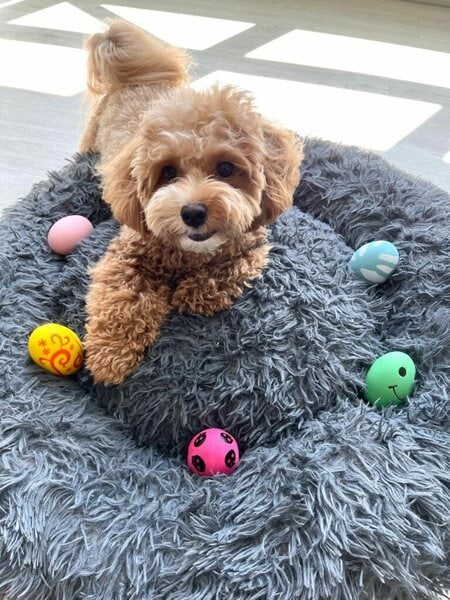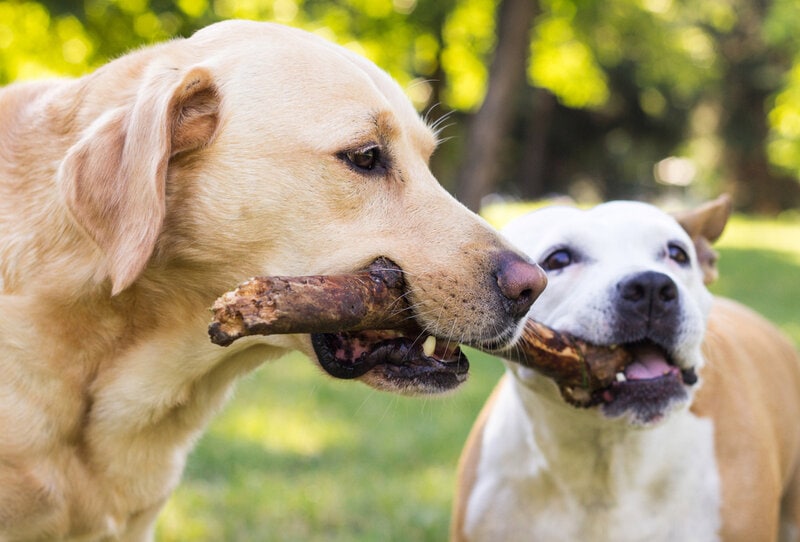One of the most annoying aspects of being a pet parent is when your pooch refuses to stop chewing on just about everything. Wood furniture, shoes, clothing, and even walls are all typical chewing targets for dogs. Your pooch might create significant damage if you do not get it under control.
As a dog parent, you’ve probably arrived home to find a piece of wood furniture or a pair of sneakers completely damaged. Dogs have been known to chew through walls or flooring, causing structural damage to your property that can be quite expensive to repair. With this, you may often find yourself wondering why dogs chew on everything.
Dogs chew for a number of reasons, including boredom, anxiety, and hunger. While chewing is regarded as a natural dog habit, putting anxiety under control and following a continuous training routine will help minimize its eagerness to chew on inappropriate objects.
Your pooch can wreak significant damage if you don’t get it under control. If you’re a new owner, though, it might be tough to stop your pooch from chewing, particularly if you don’t know what’s causing the problem. Continue reading as we go through a list of reasons why your pooch might be chewing as well as what you can do to stop it.
What Are The Reasons Why Dogs Chew Everything?
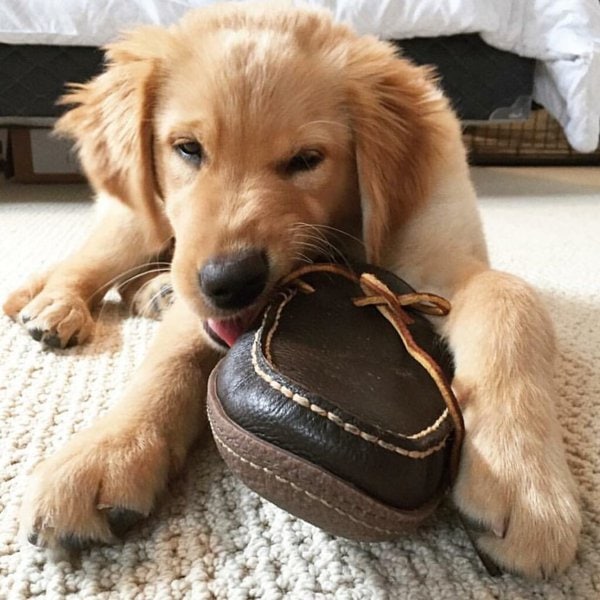
Chewing gives your pooch something else to do and is often a rewarding experience. Whenever dogs are bored, they can start chewing on everything to keep themselves occupied. Always remember that a bored dog is likely to be destructive, whereas a tired dog is likely to be happy.
Knowing why your pooch is acting a certain way can sometimes help you shift the behavior to something a little more appropriate or even stop it if it gets excessive. In this section, we’ll be discussing the reasons why dogs chew everything they smell or see.
A Way Of Seeking Attention
If they feel ignored, several dogs will misbehave to attract attention. They usually prefer being harshly scolded to having no one speak to them at all. You must exercise caution if you believe your doggie is only seeking attention, as your dog may continue to chew in order to get what it wants.
If you believe your dog is being spoiled, a dog training school may be able to assist you. These dog schools can be quite expensive, but the trainers will commonly train the dog and teach you how to train it as well so that you can apply what you’ve learned to other dogs.
Lack Of Exercise
If your pooch doesn’t really have the time to play and release its energy, it’ll continue to do so at home. If your pooch is chewing up your shoes or blankets, it’s possible that it’s the only source of its exercise and feels the need to do it. Make sure your dog gets enough exercise in the form of mental or physical stimulation if you want them to chew less.
They’re Frustrated
Several dog breeds dislike being left alone for long periods of time. They become anxious and disturbed whenever their owners are away at work and return home late. When your dog is anxious, it may chew on things since it doesn’t know what else to do.
If you are stuck at work, you could try calling a family member or friend to check on your pooch. A visit from a pal can keep the dog from recognizing you’re late and buy you extra time.
They’re Hungry
Whenever dogs are hungry, they can be destructive, breaking up the house in search of food. Toys that have recently held treats are always the first to go, but as time goes on, your pooch will become less choosy. Make sure no food or other edible objects are within reach of your dog’s sensitive nose.
In some cases, though, you may want to provide your pooch with a calorie-restricted diet. It is recommended to give them a small treat to alleviate their hunger in this scenario. If you don’t, they can mistake your pillow for a tasty hot dog.
A Case Of Anxiety
Dogs have a wide range of enhanced senses. If your pooch detects anything in your yard, it may want to hunt it down, becoming increasingly frustrated as time goes by and eventually chew on anything. Many things can irritate your dog’s keen senses, and some of them can even lead to aggression.
Boredom
The main reason that so many dogs act inappropriately and chew on everything is boredom. They’re not getting enough mental or physical stimulation, and they make sure you understand it in a way you simply can not ignore.
Why Does My Dog Chew Everything When I Go Away?
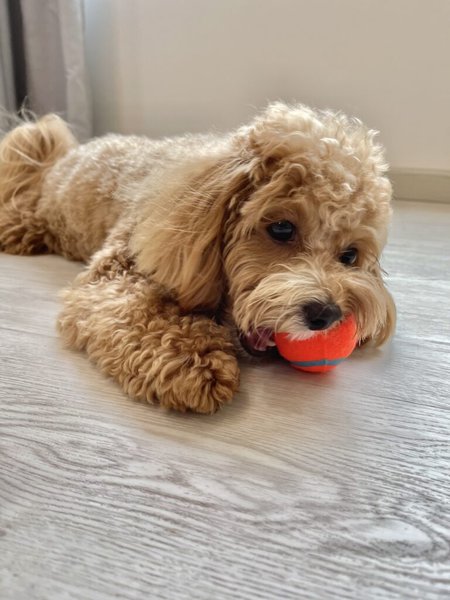
It’s not only annoying to have your pooch chew on everything while you’re gone. It could be a symptom of a more serious condition, such as separation anxiety in your dog. Whenever dogs are left alone and are anxious or disturbed, they are more inclined to chew on shoes or furniture to relieve their stress.
Almost every dog owner has been in your situation, and we all gave up being mad as soon as we saw their cute guilty expressions. This section will show you how to make your dog feel better when you’re not around while also preventing your personal belongings from being destroyed.
Is Chewing Calming On Dogs?
Several dogs find chewing to be a very calming activity. It allows them to unwind and relieve some of their tension while also providing them with something to concentrate on. It can also be distracting in stressful situations, such as being left alone.
Nearly every single dog owner has been in your shoes, but as soon as they saw their pups’ cute guilty expressions, they all stopped being mad. To prevent this from happening again, you can give your dog a variety of chew toys to gnaw on, ranging from short-term to long-term use. Here’s an example of chew toys for your dogs:
- Pig ears
- Duck feet
- Tripe sticks
- Cow ears
- Raw bones
- Refillable marrowbones
How To Stop My Dog From Chewing Things While I’m Gone?
The ideal approach to prevent your pooch from causing damage to your stuff while you are away is to address the real problem. There are things you can do to satisfy your dog’s needs and eliminate the destructive behavior, whether it’s too much freedom, inadequate physical or mental activity, or separation anxiety.
Here are some suggestions for helping your dog and home goods in surviving time alone:
Give Your Dog Physical And Mental Stimulation
Make the most of your time at home by allowing your pooch to stretch its legs and its mind. A few daily walks and games should do, while certain active breeds may require more strenuous exercise.
Limit Their Freedom
Make use of crate training. Crate training is an excellent method for teaching dogs to stay in a given area and avoid misbehavior when left alone. Crates enable dogs to become acclimated to being alone and give comfort by providing them with their own personal space.
Make sure your dog is in a crate that is the right size for them and that they have something to do while they are in it. Other options, besides crate training, include the following:
- Playpen
- A securely fenced yard
- Dog-proof room
Know The Root Cause Of Its Behavior
In some circumstances, you’ll need to take a closer look at your dog’s behavior to see if they’re suffering from separation anxiety. Symptoms of separation anxiety in dogs include the following:
- Attempting to escape the house
- Excessive barking each time you leave
- Chew on everything
Patience will be key in this scenario, as well as providing your dog with a chew-proof area while you are away. If your dog is suffering from severe separation anxiety, it should not be ignored. It might be quite useful to work with a professional trainer.
Why Do Dogs Chew Nothing?
There could be a few possible reasons why a dog’s mouth moves in strange ways as if it’s chewing something. A dog may seem to be chewing nothing because something is stuck in its throat or in between its teeth, and there are a variety of other possible causes for the motion.
Something Is Stuck In Their Throats
One of the most alarming reasons why a dog chews with nothing in its mouth is that something is stuck in its throat.
When a dog gets something caught in its throat, it may make chewing noises while trying to get it out. The problem is that your dog could be suffocating as a result of its throat being blocked.
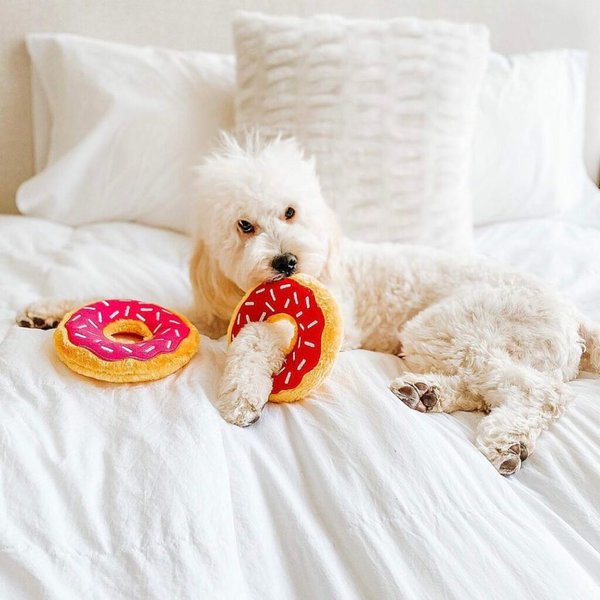
Food Chunks Were Stuck In Their Teeth
Food caught between the teeth is one of the most frequent causes of random mouth chewing in dogs. This will be largely determined by what your pooch has been eating as well as the spacing of its teeth.
Something Else Is Inside Their Mouths
Even though it appears that your pooch is chewing nothing, it could be chewing something that you are unaware of. Looking inside a dog’s mouth can be risky, so be sure you know your doggie well before doing so.
It’s also likely that your pooch has fur stuck on its tongue and is attempting to remove it by chewing. It might even be dog toy stuffing. If the object is difficult to remove, appears painful, or your dog is likely to be aggressive as you try to remove it, you should take your dog to the veterinarian.
Is It Normal For Dogs To Chew Things Up?
Chewing is a common activity in canines of all ages. Dogs, both domestic and wild, chew bones for hours. This action keeps their teeth and jaws healthy and strong. However, simply supplying suitable chewing objects is unlikely to avoid inappropriate chewing. Dogs must be taught what it is and is not okay to chew.
What To Do If Your Dog Chews On Everything?
Determine what’s wrong with your pooch and use that information to guide your subsequent actions. Puppy teething toys and cages will help if your dog is a puppy. If your dog is older, though, develop a plan on giving more attention and exercise on a daily basis. Medical issues can be ruled out with the help of your veterinarian.
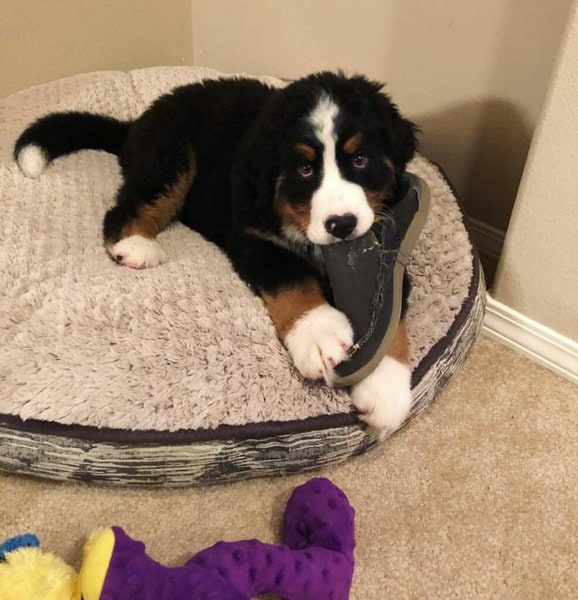
Should You Punish Your Dog For Chewing Things?
It’s important to keep dogs from chewing, both for their safety as well as for your personal comfort.
Negative punishments, such as beating or hitting your pooch, may, on the other hand, complicate the situation and encourage your dog to become much more destructive.
What’s The Best Way To Discipline Puppy’s Chewing Behavior?
Scold your pup and take away anything they were chewing on at the moment. As a substitute, provide toys or chewing treats that will keep them occupied for hours. This will teach your doggie to chew on only what they have been permitted to eat and will help them fulfill their chewing desire.
When Will My Dog Stop Chewing?
Some canines have a natural inclination for chewing. It’s to be encouraged, and it’s actually extremely beneficial for dogs, as long as they’re not destructive with it. However, you must make sure that there are enough chewing alternatives to avoid destructive behavior.
When Will My Puppy Stop Chewing Everything?
Puppy chewing is frequently triggered by their baby teeth emerging or being replaced by permanent teeth. When all of a puppy’s milk teeth are replaced by adult teeth at the age of 4 to 6 months, teething stops.
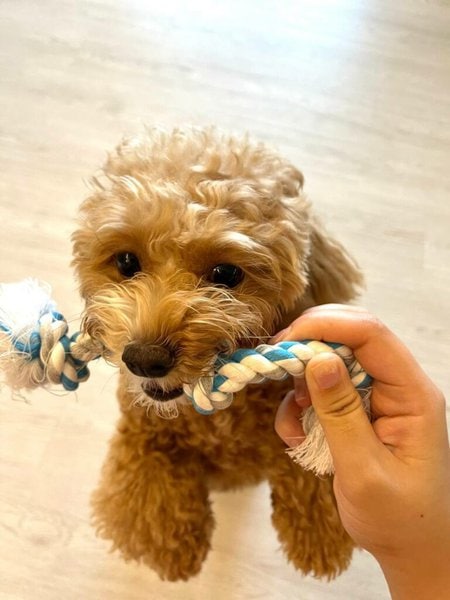
Why Is My Adult Dog Still Chewing?
Dogs use their mouths to investigate the environment. While puppies will eventually grow out of teething, they’ll most likely continue to enjoy chewing. It’s a healthy and natural canine habit.
Chewing isn’t only a fantastic way to get rid of extra energy and tension, but it also helps to keep your dog’s teeth clean. It wipes away food debris and harmful bacteria from teeth after eating, avoiding plaque build-up or gum disease.
Do Puppies Chew More Than Adult Dogs?
While a bored or under-exercised pup may chew on anything, experts suggest that the amount of chewing a puppy will do decreases as it gets older. As dogs become older and their permanent teeth come in, as well as their drive to investigate their environment declines, they are less likely to chew on inappropriate stuff.
How To Stop A Dog From Chewing On Everything?
There are several things you can do to stop your dog from chewing on everything, and one of them is to provide them with something better.
From smart puzzles to flavored chew toys, there are various products available on the market, and choose something that your dog won’t readily destroy and that you’ll be able to keep your dog busy for hours.
How Do You Train A Destructive Dog?
When it’s necessary, impose discipline. Your puppy must be trained early on so that they can only chew on items that have been provided to them, but you must keep everything else out of their reach until they are emotionally and mentally mature enough to grasp and remember these instructions.
If you must leave your dog alone for an extended period of time or for a short period of time, make sure they are kept in a secure location, such as a dog crate or a designated area of your home.
How To Stop Senior Dog From Excessive Chewing?
Everything that your senior dog might be able to get to and shouldn’t have must be put away. They’ll chew it if they can get their mouths on it. If you can’t totally doggy-proof the house or need to leave for a few hours during the day, it’s probably best to keep your senior dog inside a crate or in a dog-proof area of the house.
Given that excessive chewing may be due to boredom, make sure that you and your senior dog are getting plenty of playtime and exercise together. Senior dogs, in particular, benefit from walks to keep their muscles and joints in good shape.
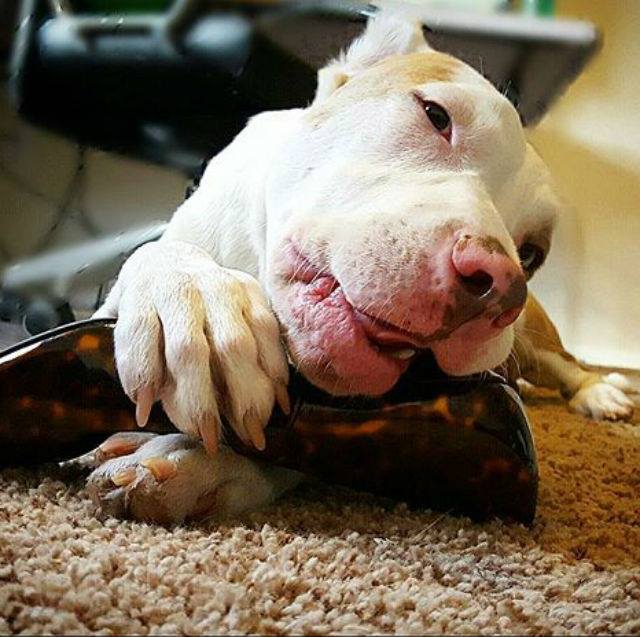
Are Dogs Natural Chewers?
Chewing is a natural instinct for dogs, and they chew to relieve pain in their teeth. The natural need to chew originates from your dog’s ancestors. Wolves and wild dogs clean their teeth by chewing. Chewing on bones and raw meat kept their teeth in good shape.
Which Dog Breeds Chew The Most?
If you’re trying to figure out which breed would be ideal for your family, bear in mind that some of the dogs on this list may require a little extra care, exercise, or training to keep them from chewing on objects that they shouldn’t:
- Jack Russell Terrier
- Chihuahua
- Beagle
- Labrador
- Golden Retriever
What Dogs Are Not Chewers?
Every dog breed chews, but smaller, lower-energy canines are less likely to do so. However, if not adequately exercised or stimulated, any dog will most certainly become destructive. These breeds are the following:
- Mastiff
- Boston Terrier
- Miniature Schnauzer
